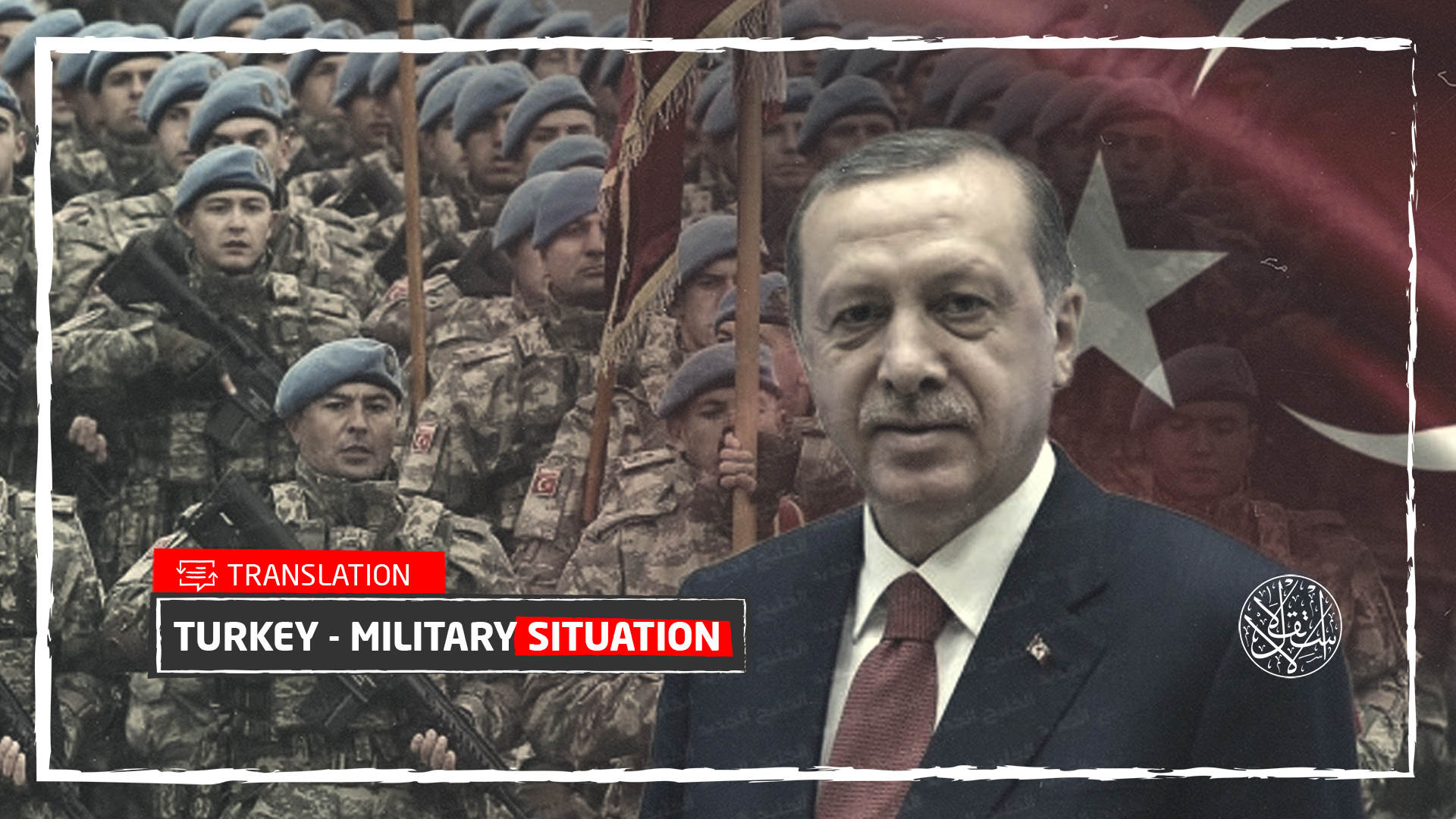The Turkish Military Structure 5 Years After the 'July' Coup

A French newspaper said that the purges that affected the Turkish army following the coup attempt on July 15, 2016, helped change the location and identity of the military establishment.
"The Turks have always been military," La Croix quoted the former Chief of Staff of the Turkish Navy, Jihat Yayji, the theorist of the Turkish "Blue Homeland'' doctrine, which dictates the country's strategy in the Mediterranean.
From his office on the tenth floor inside a majestic skyscraper in a bustling district in central Istanbul, which has a stunning view of the Bosphorus Strait that separates the European and Asian sides of the city, Yayji emphasized that the army in Turkey is "highly appreciated and respected by the people."
"This is the reason why Fethullah Gulen terrorists, who are accused of instigating the attempted coup in 2016, infiltrated this institution because they believed that they would get the people's support," he said.
Cleansing the Army
The newspaper reported that "five years ago, on the night between 15-16 July 2016, a part of the army rose up against the government of Recep Tayyip Erdogan."
The coup leaders, most of them followers of Gulen, kidnapped Chief of Staff Hulusi Akar, bombed the parliament, and attacked the hotel where President Erdogan was staying in the southern city of Marmaris.
The Bosphorus Bridge in Istanbul and other public places in the capital, Ankara, witnessed violent clashes between the army and Turkish citizens, who took to the streets by order of Erdogan.
The failed coup attempt was met with massive popular protests in most Turkish cities and states, forcing the putschists to withdraw their military vehicles from the cities, and thwarted their plan.
The coup attempt left 251 civilians dead and more than 2,200 wounded.

Once this threat was averted, the Turkish authorities carried out large-scale purges in many institutions and departments (education, justice, military) during the two years of the state of emergency in order to "cleanse" the state apparatus of the currently hated fraternity members (old ties in the army).
The elements of the various army corps have also been purged of the "Gülen" group, with a number of 20,566 people, according to figures released by the state-run Anadolu Agency on November 19, 2020.
Of the 289 lawsuits filed against those responsible for the coup, 3,000 were sentenced to life imprisonment.
Military-Civilians Balance
The role of the military institution in Turkey has traditionally been to intervene in politics, an institution guarantor of secularism and the stability of the state, through the numerous coups that have permeated the history of the republic, almost every decade since its founding in 1923.
However, the army gradually lost strength in the early 2000s, with the rise to power of the Justice and Development Party, in parallel with Turkey's accession process to the European Union.
Actions taken under the decrees after July 15 and the amendments made with the 2017 constitutional reform significantly altered the current balance between military and civilian power.
"Civil and military relations have developed, and the president of the republic has become the cornerstone of the army," said Sunbul Kaya, associate professor at the Institute of Anatolian Studies in Istanbul.
In the same context, it continued, "The president and ministers with authority within the Supreme Military Council (YAŞ), and who are responsible for promoting the higher ranks, can surround themselves with loyal people, while limiting their number to better control them."
Kaya, an army sociologist, also noted a greater tolerance of religious practices within the military and interpreted this as "revenge of conservative sections of the population against the Kemalist military elites (loyal to the founder of the republic, Mustafa Kemal Ataturk)."
Kaya also emphasized, "the consensus on this shift in the military is broader than it appears."
The French newspaper concluded its article by saying: "Turkey, which will celebrate its centenary in 2023, will truly enter a new era."








